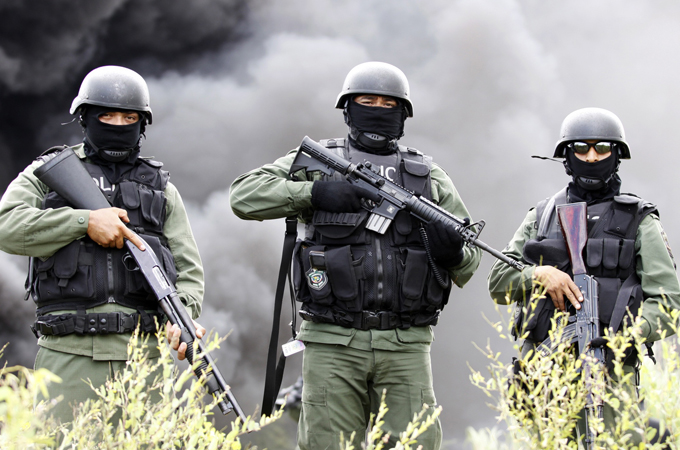Panama leader denies Wiki criticism
President of Central American country rejects allegation in WikiLeaks memo that he sought phone taps on political rival.

 |
| Martinelli allegedly threatened to cut back on anti-drug cooperation if he didn’t get US help with wiretaps [Reuters] |
Ricardo Martinelli, Panama’s president, has denied that he asked the US to help install phone taps on his political opponents, which is alleged in a recently released WikiLeaks document.
But Martinelli acknowledged on Saturday a request for help against criminals and organised crime figures.
A leaked US diplomatic cable from August 22, 2009, quotes Barbara Stephenson, the then US ambassador to Panama, as saying the newly elected conservative president asked for help with wiretaps soon after he took office on July 1.
Martinelli, a supermarket tycoon elected last year, sent a “cryptic” message to the US ambassador in Panama which said, “I need help with tapping phones,” according to the cable.
‘Drug war’ methods
One of Martinelli’s top officials later told a US Drug Enforcement Administration official the taps would be aimed at possible attempts by leftist governments in the region to interfere in Panamanian politics, and people targeted by anti-corruption or anti-drug campaigns.
But the diplomatic memo published by the Spanish newspaper El Pais said Stephenson thought Martinelli was not making a distinction between legitimate security targets and political opponents.
Martinelli allegedly complained the ambassador was being “too legal” when she refused the request.
In a statement, Martinelli’s office said “help in tapping the telephones of politicians was never requested,” adding “any such interpretation of that request is completely mistaken”.
The government called it “a mistaken interpretation by US authorities of the request made for assistance in combatting drug trafficking, crime and organized crime”.
According to the cable, Stephenson thought Martinelli was making an implicit threat to cut back on anti-drug cooperation if he didn’t get US help with the wiretaps.
The statement by Martinelli’s office said his administration “maintains excellent relations with the United States” and would continue to explore areas of cooperation in the fight against organised crime.
Embarrassing WikiLeaks
DEA spokesman Lawrence Payne said on Saturday the agency cannot comment about the WikiLeaks cable, because such cables are considered classified.
The publication of the diplomatic messages is the latest example of the ability of WikiLeaks, founded by Australian Julian Assange, to cause international embarrassment.
A scandal over wiretapping could cause a serious challenge to Martinelli’s popularity. The conservative business leader, who is one of Panama’s richest men, has a nearly 60 per cent approval rating.
But the cable expressed worry that Martinelli was willing to bend the law to reach his political goals.
“His penchant for bullying and blackmail may have led him to supermarket stardom but is hardly statesmanlike,” the cable said.